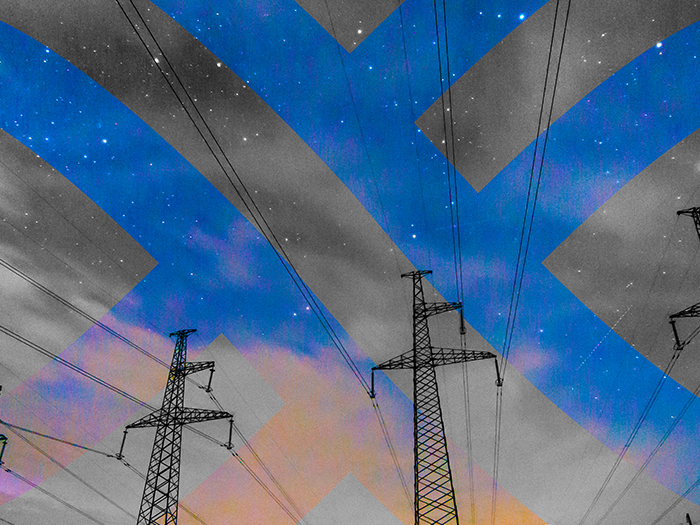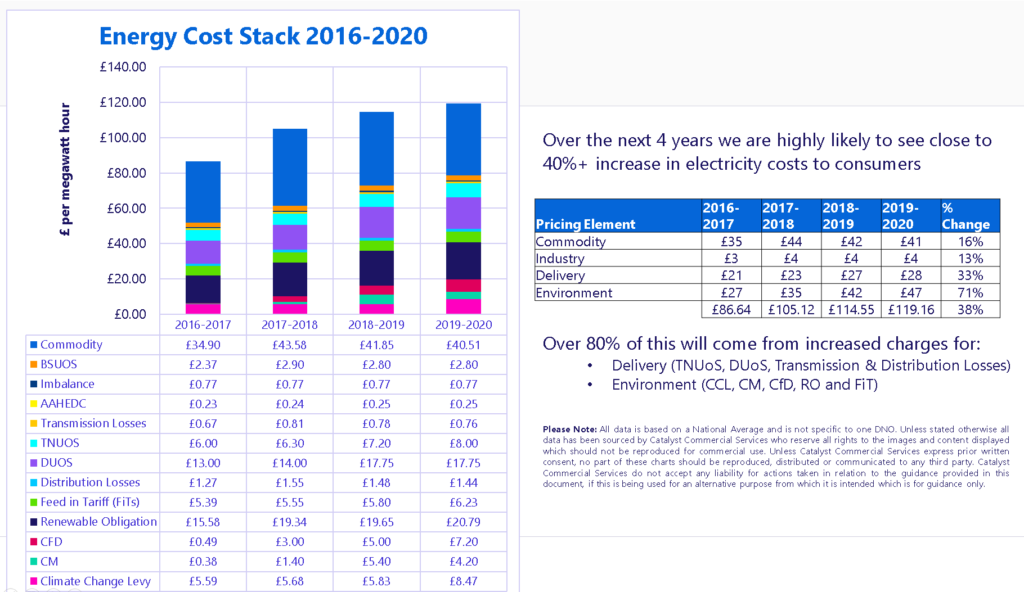News
better business decisions
Posted 8 years ago | 4 minute read

Businesses exasperated by “higher than necessary” costs, Dieter Helm report calls to “radically simplify” the energy market
A recent review by Professor Dieter Helm revealed that excessive green taxes are pushing energy costs “higher than necessary”, and highlighted a need to “radically simplify” the energy market, leaving businesses exasperated by a seeming inability to simplify and minimise charges.
Within Professor Dieter Helm’s framework of recommendations for the government, he expresses a concern for the energy market at the moment, and the costs around the integration of renewables (both new and legacy). Some interesting key findings were:
- “The cost of energy is too high, and higher than necessary to meet the Climate Change Act (CCA) target and the carbon budgets. Households and businesses have not fully benefited from the falling costs of gas and coal, the rapidly falling costs of renewables, or from the efficiency gains to network and supply costs which come from smart technologies.”
- “Households and businesses have not benefited as much as they should because of legacy costs, policies and regulation, and the continued exercise of market power.”
- “Complexity is itself a major cause of rising costs, and tinkering with policies and regulations is unlikely to reduce costs. Indeed, each successive intervention layers on new costs and unintended consequences. It should be a central aim of government to radically simplify the interventions, and to get government back out of many of its current detailed roles.”
Studies by Aurora Energy research found that the carbon tax that penalises dirtier coal more heavily than gas, has had a significant impact on the amount of coal burned for electricity generation. Whilst the taxes have been frozen since 2015 to mitigate concerns around rising energy prices, the total carbon price in Britain is still £23 per tonne – which is nearly five times the amount paid in the rest of Europe.
GridBeyond have found, from speaking to clients and industry peers, that many businesses are opposed to these taxes and levies due to the impact the costs will have on their business. According to predictions from our partner, Catalyst Energy Solutions, large energy intensive sites are likely to see a cost increase close to 40% in the next 4 years. You’ll see from their table below the predicted breakdown of the pricing elements.

There is little chance that costs will come down any time soon, especially with suppliers already announcing significant increases – British Gas recently announced that they will be increasing electricity prices by 12.5% for around 3 million customers. But one thing businesses can do to alleviate financial stress on their business is participate in demand side response programmes.
CEO, Michael Phelan, commented on the argument for demand side response and battery to support the integration of renewables and to net off the increased cost to businesses. Whilst there has been much negativity around the increasing costs, there is some light when counterbalancing the increase with savings and revenues…
“The businesses paying the highest bills, have the ability to balance the grid at times of intermittent energy and renewable instability. Most of the large traditional industrials that are struggling at the moment are probably the ones with the most flexibility and are in a position to gain from this.
As many know, there is a lot of bad feeling in the [industrial] sector over the cost of renewables, because companies feel they are being made uncompetitive. But the nice thing about using their load to participate in demand side response is that they become a beneficiary as well as being part of the solution to the Grid’s issues. With peak avoidance and revenue schemes in place, they now become supporters, because they are helping to manage the entire grid whilst actually getting something back for the investment in renewables. Businesses don’t mind so much paying the money with one hand and getting it back in the other. So the very people who were against it become for it thanks to DSR, battery storage and technology advancements.”
For more information on how to future-proof your business against increasing energy costs, please contact on of our friendly demand side response experts
Image Credit: Catalyst Energy Solutions






